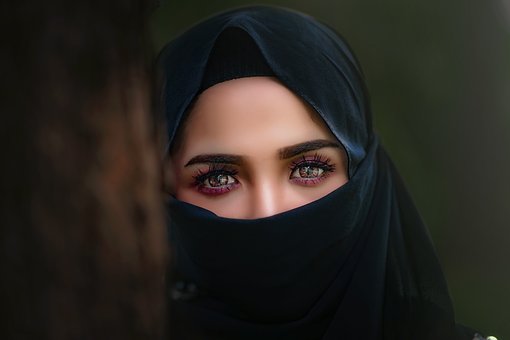Colombo: The law to ban face coverings took effect from Monday in Sri Lanka. The move which came a week after more than 250 people were killed in a series of coordinated attacks on Easter Sunday, has drawn a mixed response. Activists say that the move “violated Muslim women’s right to practice their religion freely”.
President Maithripala Sirisena said on Sunday “The ban is to ensure national security… No one should obscure their faces to make identification difficult.”
All Ceylon Jamiyyathul Ulama (ACJU), the top body of Islamic scholars in the South Asian island nation has backed the move on security grounds.
However, according to Al Jazeera people had dividing opinions in the Indian island nation. It published views of some people including Muslim women.
33-year-old, Qaanita Razeek, co-founder of Soup Kitchen Sri Lanka which helps the destitute, regardless of race/religion, wearer of niqab, said, while I understand that there is a difference in scholarly opinion about the wearing of the face veil, I made the choice to wear the niqab 16 years ago and asking me to unveil now is like asking to strip me of my identity.
Harshana Rajakaruna, Member of Parliament from the ruling United National Party felt that the majority of the Muslim community are very positive and happy about the ban.
Another Muslim woman a prominent social activist based in Colombo, wearer of hijab says, in the current context, I don’t think there is anything much we can do to show resistance against this ban. However, the worry is the precedent that the law is setting.
Kalana Senaratne, senior lecturer, Department of Law, University of Peradeniya welcomed the banning of the burqa/niqab finding it positive if this marks a shift in Sri Lankan society towards a more secular ethos. However, she said, if the banning is motivated by hate, it would have a very negative impact especially on the Muslim community in the long-term.
She added security cannot be enhanced merely by banning the burqa/niqab. It has to be linked to the broader objective of secularisation of Sri Lankan society, which in turn requires other ethnic and religious groups, including the Sinhala Buddhist majority, to rethink and reform their own communities in more progressive and pluralist ways.
Tehani Ariyaratne, women’s rights activist observed that any ban on the niqab without consultation with those who would be directly affected by it is nothing but a reactionary response by the state, designed to distract from its woeful lack of accountability for the events that have taken place over the last week.
Saying that Muslim women and Muslim women’s rights groups and activists have not been consulted in the process of putting this ban in place, she said this is unacceptable. It is a violation of their right to practice their religion freely, and they should be the principal stakeholders in this discussion.

